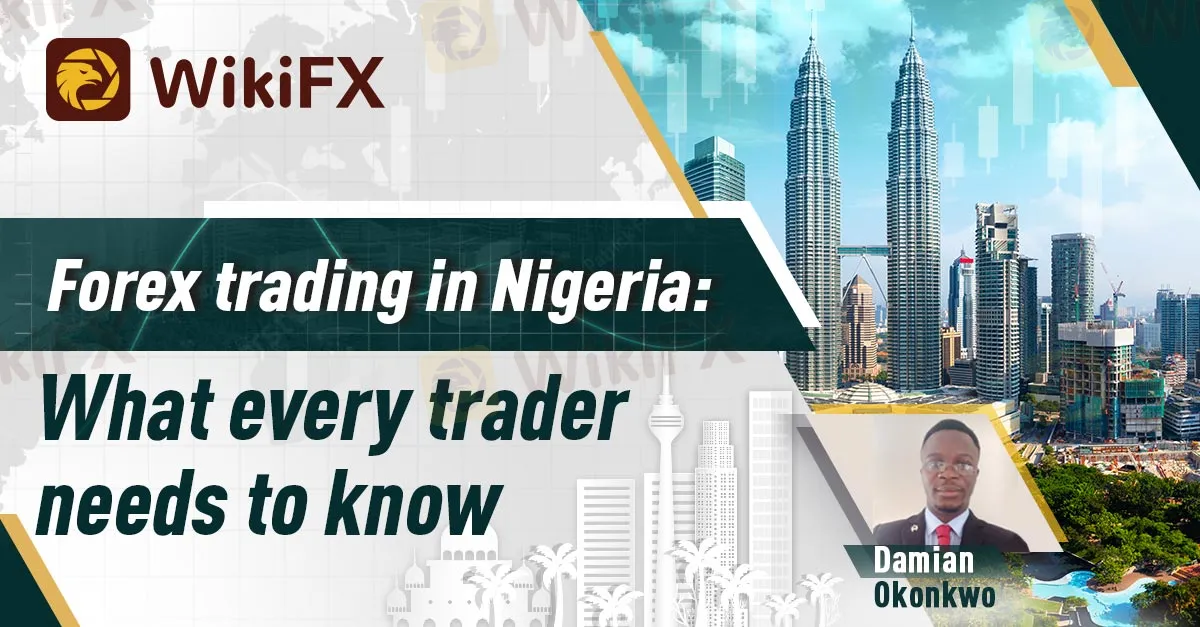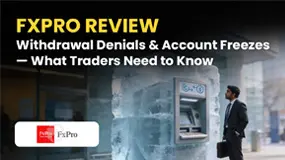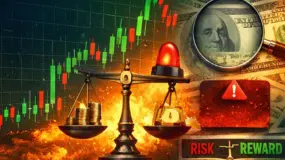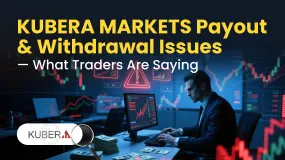Abstract:Forex trading is a popular investment vehicle that allows traders to profit from the fluctuations in exchange rates between different currencies. The foreign exchange market is the largest and most liquid financial market in the world, with an estimated daily trading volume of over $6 trillion. In Nigeria, forex trading has become increasingly popular in recent years, with many individuals and businesses seeking to take advantage of the opportunities offered by this dynamic market. In this article, we will explore what every forex trader in Nigeria needs to know to succeed in the forex market.

By: Damian Okonkwo

Forex Trading Basics for Beginners
Forex trading is a popular investment that involves buying and selling different currencies to make profits from market volatility. The most commonly traded currencies in the forex market include the US Dollar, Euro, British Pound, Japanese Yen, Swiss Franc, Canadian Dollar, and Australian Dollar. Forex trading is typically done through a broker or trading platform that provides access to the market and allows traders to execute trades.
Forex traders make money by buying currencies when they are undervalued and selling them when their value increases. The exchange rate between two currencies is determined by a range of factors, including interest rates, economic growth, political stability, and geopolitical events. Traders use a range of technical and fundamental analysis tools to predict market trends and identify trading opportunities.
Regulation of Forex Trading in Nigeria
The Central Bank of Nigeria (CBN) alongside the Securities and Exchange Commission (SEC) are the two important bodies that regulate forex trading in Nigeria. While the CBN is responsible for regulating the forex market and ensuring that trading is conducted transparently and fairly. The SEC regulates forex brokers and trading platforms, ensuring that they operate following Nigerian laws and regulations.
In Nigeria, forex trading is legal and accessible to both individuals and businesses. However, there are some restrictions on forex trading, particularly for individuals. For example, individuals are not allowed to trade forex using their domiciliary accounts or credit cards, and they are required to have a minimum deposit of $1,000 in their trading account. Businesses, on the other hand, are allowed to trade forex using their corporate accounts.
Choosing a Forex Broker
Choosing a regulated broker is an important factor considered by traders today. In Nigeria, there are many forex brokers to choose from, each with its strengths and weaknesses. When selecting a forex broker, traders should consider a range of factors, including the broker's reputation, trading platform, fees and commissions, customer support, and regulatory compliance.
It is also important to consider the type of trading platform provided by the broker. Most forex brokers offer either a web-based platform or a downloadable trading platform. A web-based platform is accessed through a web browser and does not require any software installation, while a downloadable platform is installed on the trader's computer. Traders should also consider the availability of mobile trading apps, as this allows them to access the market on the go.
Risk Management
Forex trading is one of the most risky investments today. Often, the risks could be so high that it can lead to significant losses if not managed properly. Therefore, risk management is a crucial aspect of successful forex trading. Traders should set stop-loss orders to limit their losses in the event of a market downturn. They should also avoid over-leveraging their trades, as this can increase the risk of losses.
Traders should also have a solid understanding of technical and fundamental analysis to identify trading opportunities and minimize risks. Technical analysis involves the use of charts and technical indicators to analyze market trends and identify trading opportunities. While fundamental analysis involves examining the economic and political factors that can affect a currency pair.
Conclusion
Forex trading is a lucrative investment opportunity that can provide traders with substantial profits if done correctly. In Nigeria, forex trading is legal and regulated, but traders should be aware of the restrictions and requirements imposed by the CBN and SEC. Choosing the right forex broker, managing risk, and having a solid understanding of market analysis are all essential for successful forex trading.











